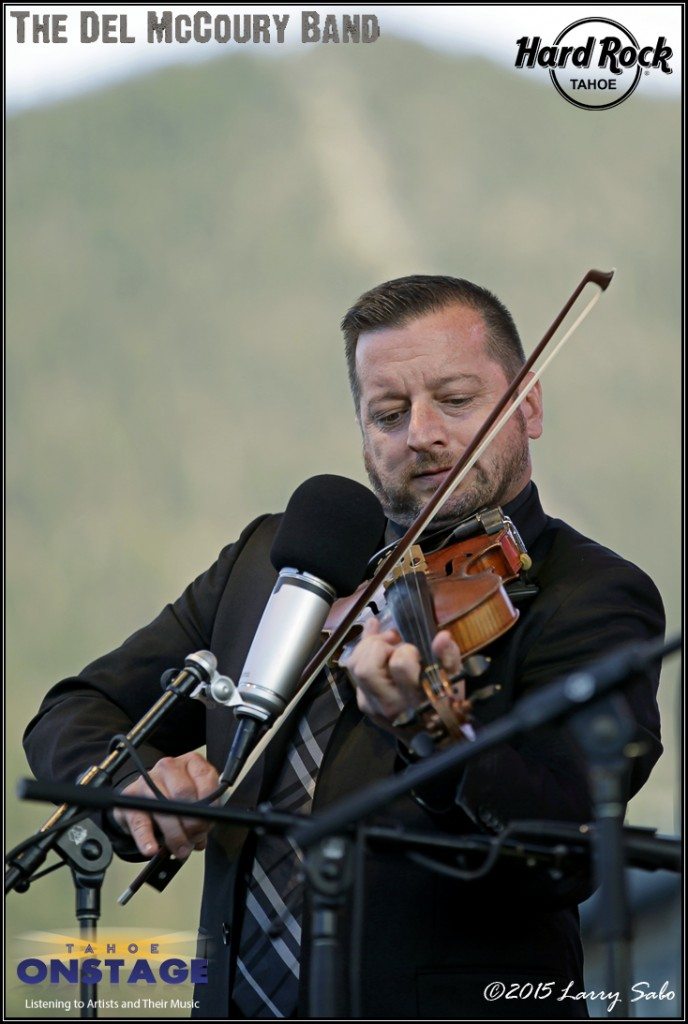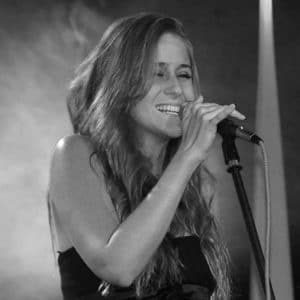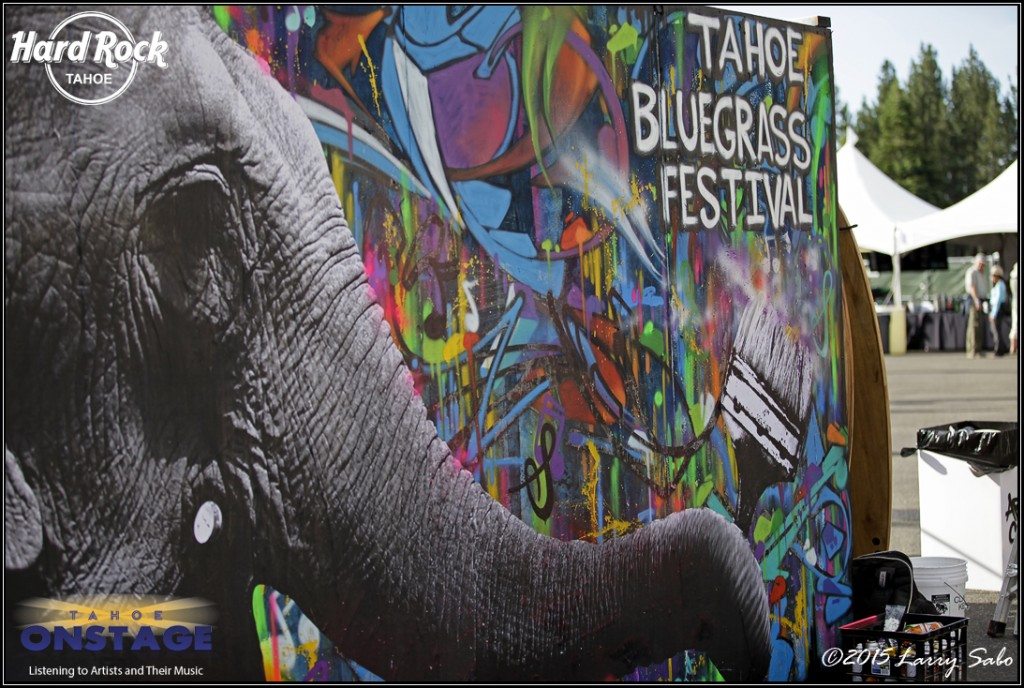
Tahoe Onstage photos by Larry Sabo
Bluegrass has always found sanctuary in the High Sierra. Maybe it has something to do with the fact that the pulsing vibes of a finger-picking string band can usually throw a crowd into a grinning tizzy. Or maybe the rich harmonies and earthy instrumentation resonate on a sublime frequency off the cragged mountains and rolling meadows. Whatever the case, bluegrass has a powerful influence in Tahoe, as proven in that you can name at least two people trying their hand at mandolin or banjo.
So it was a great surprise to discover a couple months back that the Hard Rock Hotel & Casino and PR Entertainment teamed together to cultivate the inaugural Lake Tahoe Bluegrass Festival. Booking cornerstone bluegrass acts like Del McCoury and Jerry Douglas with torch bearers for the new generation of pickers like Greensky Bluegrass, the organizers certainly touched upon all aspects of mountain music. Despite such a solid lineup, there were certainly plenty of uncertainties with such a new venture, like how will the live music community respond to a first-of-its-kind music festival or how does bluegrass’ back-to-the-earth aesthetic function on a parking lot behind casinos? The only way to clear up these uncertainties was to let 10.5 hours of music rip in front of a crowd and record the results.
The most natural choice and surefire crowd-pleaser for the festival was local heroes Dead Winter Carpenters, who represented Tahoe splendidly with its batch of homebrewed, fiddle-tinged, country-rock sound. It isn’t hardly, strictly bluegrass, but the band’s smoking strings on “Triumph” got the crowd turning loose and “Tahoe Gal” displayed a beautiful interplay of Jenni Charles’ fiddle and Bryan Daines’ electric guitar that swirled around each other like mating birds. “This is our favorite bluegrass song,” quipped singer Jesse Dunn before the band gnashed its way through a bombastic cover of Metallica’s “For Whom The Bell Tolls” to close the set, blowing any bluegrass conventions into smithereens.
Other bands went left of the bluegrass dials and the eclecticism of the afternoon’s offering sound added a nice dynamic to the day’s festivities. The David Grisman Sextet and its “Dawg Music” smattered its bluegrass-jazz fusion onto the musical canvas with bright swaths of flute and percussion and provided a surprisingly funky and rhythmic set. The lovely stringed shuffle on “Hornpipe Dream” got everyone dancing in unison, asphalt be damned, and everyone’s plastered grins got even larger when Grisman launched into the bluegrass swing of “Grateful Dawg,” which he wrote with Jerry Garcia.
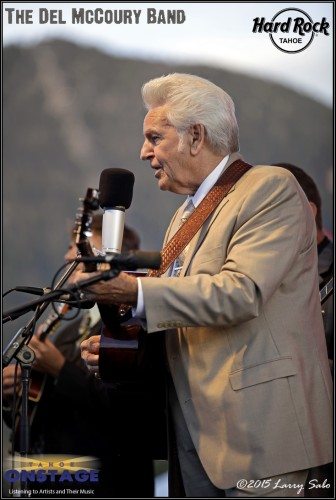 One band that definitely was free of any bluegrass tag was San Francisco jammers New Monsoon, which was driven by soulful and rock-oriented electric grooves that created a rich sound so varied in influence it could only be described as its own. “No Reservations” unfurled in bright organ and bluebird-sky guitar, with its Grateful Dead-like melody calling for everyone to “run to the mountains, gather round/ Sweet taste of whiskey and sunshine/ Drink down the apple cherry wine/ No reservations, feeling alright,” perfectly summarizing the carefree and breezy vibe of the festival.
One band that definitely was free of any bluegrass tag was San Francisco jammers New Monsoon, which was driven by soulful and rock-oriented electric grooves that created a rich sound so varied in influence it could only be described as its own. “No Reservations” unfurled in bright organ and bluebird-sky guitar, with its Grateful Dead-like melody calling for everyone to “run to the mountains, gather round/ Sweet taste of whiskey and sunshine/ Drink down the apple cherry wine/ No reservations, feeling alright,” perfectly summarizing the carefree and breezy vibe of the festival.
Despite some band’s playing with the boundaries of the bluegrass genre, there were certainly members of the finger-picking old guard who held down the fort, none more steeped in tradition than Jerry Douglas’ Earls of Leicester. The dobro master and his band looked straight out of 1952 with the members’ matching black and white suits, Colonel Sanders-like bow ties and cowboy hats and played a talented tribute set to two of the pioneers of bluegrass music, Earl Scruggs and Lester Flatt. The band replicated the old playing style of huddling around a single microphone and ticking off succinct solos and played songs like the duo’s “Don’t Let Your Deal Go Down” and “Roll In My Sweet Baby’s Arms” with splendid authority. When the whole band leaned in together on the gospel-tinged “Get In Line Brother” in uplifting harmony and with a collective twinkle in its eye, it was evident this was more of a love affair with this storied music than a tribute.
Where the Earls of Leicester drew upon the music of past legends, the Del McCoury Band was powered by the affable energy of its legendary namesake and his familial clan of astounding pickers. Del McCoury is a living legend whose reedy, honeysuckle voice was as soothing at 76 as it has ever been and his sons Ronnie (mandolin) and Robbie’s (banjo) proved the family is in good hands with their hummingbird-paced breakdowns and succinct solos. McCoury played the part of everyone’s cute, charming grandpa and took requests from the audience for songs like “The Mountain” and “Big Blue Raindrops” while intermixing in amiable banter about the Grand Ole Opry and his sons’ talent. It was impressive to think McCoury has been doing this for over five decades now and still approaches each show with a high degree of professionalism, musicality and personality, a fine example of how bluegrass should be done.
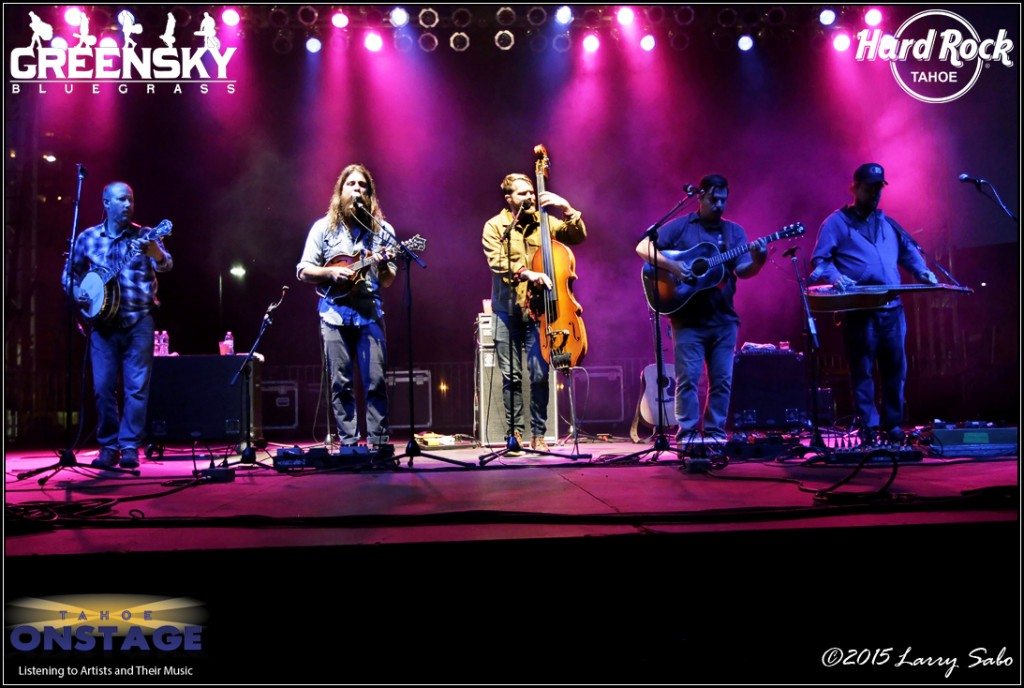 The starlight last set was reserved for the Kalamazoo, Michigan outfit Greensky Bluegrass and served as a proper vantage point to see bluegrass’ current sonic makeup and where it is headed. You could easily hear the band’s myriad influences on songs like the pulsating “Windshield” which had a sweeping rock aura to match mandolin player and vocalist Paul Hoffman’s rich, to the more traditional picking of “Just To Lie”, which transitioned into a majestic cover of Van Morrison’s “Into the Mystic” after a layered and heady interlude, showcasing just how versatile this talented band is. The centerpiece of the night was the riveting “Don’t Lie,” which proved to be a massive psychedelic exploration. The middle jam built in force and intensity around the guitar, mandolin and banjo like the thunderclouds that have passed through Tahoe over the past week. Like a supercharged current, Anders Beck’s dobro took the song to its electric climax with echoing primal tones and searing fretwork that left everyone whooping and cheering in the frenetic light show. Greensky Bluegrass was magnificent and its evolving interpretation of what a bluegrass band can sound like was fitting to close out a festival that was spiked with so many different forms of string band music.
The starlight last set was reserved for the Kalamazoo, Michigan outfit Greensky Bluegrass and served as a proper vantage point to see bluegrass’ current sonic makeup and where it is headed. You could easily hear the band’s myriad influences on songs like the pulsating “Windshield” which had a sweeping rock aura to match mandolin player and vocalist Paul Hoffman’s rich, to the more traditional picking of “Just To Lie”, which transitioned into a majestic cover of Van Morrison’s “Into the Mystic” after a layered and heady interlude, showcasing just how versatile this talented band is. The centerpiece of the night was the riveting “Don’t Lie,” which proved to be a massive psychedelic exploration. The middle jam built in force and intensity around the guitar, mandolin and banjo like the thunderclouds that have passed through Tahoe over the past week. Like a supercharged current, Anders Beck’s dobro took the song to its electric climax with echoing primal tones and searing fretwork that left everyone whooping and cheering in the frenetic light show. Greensky Bluegrass was magnificent and its evolving interpretation of what a bluegrass band can sound like was fitting to close out a festival that was spiked with so many different forms of string band music.
In the end, Mother Nature smiled on Tahoe and provided a scenic backdrop to an amazing day of music. The attendees were passionate about the bands that graced the stage and smiles were a constant fixture on people both on the stage and in the crowd. The inaugural Lake Tahoe Bluegrass Festival was definitely a welcomed new addition to the live music scene and if organizers can continue to procure such talented and influential roster of bands, this festival should become a mainstay in the area for years to come.

